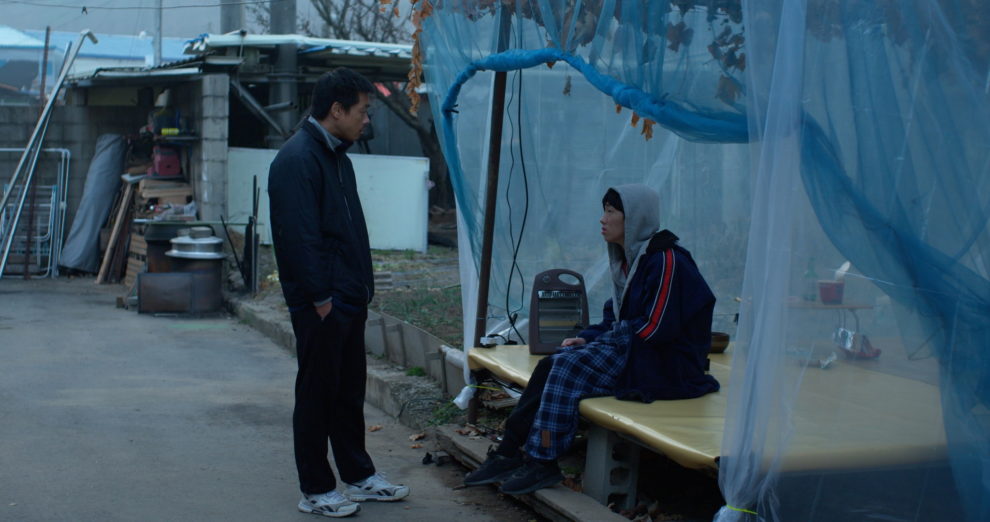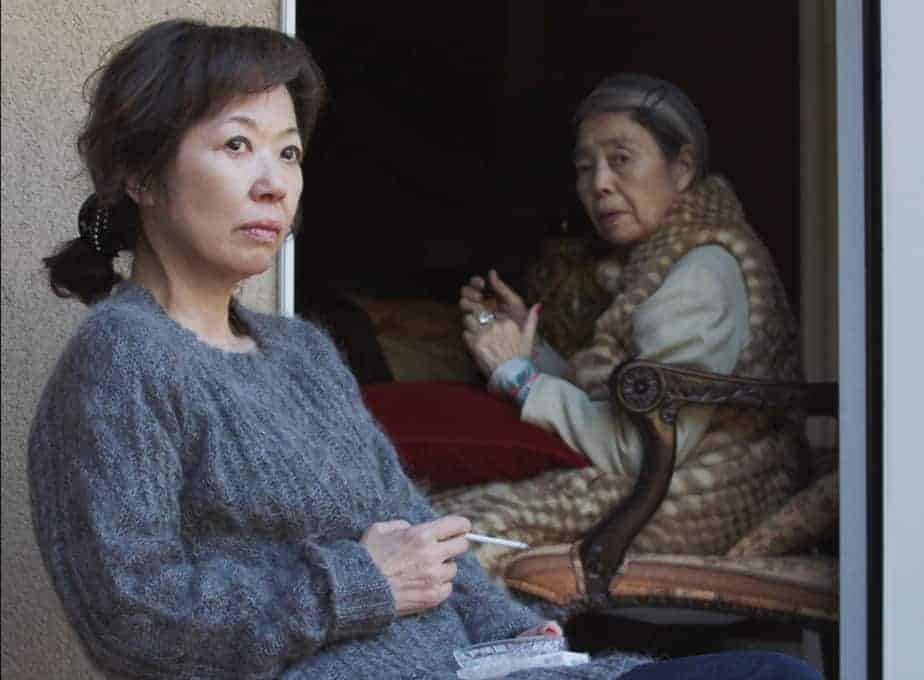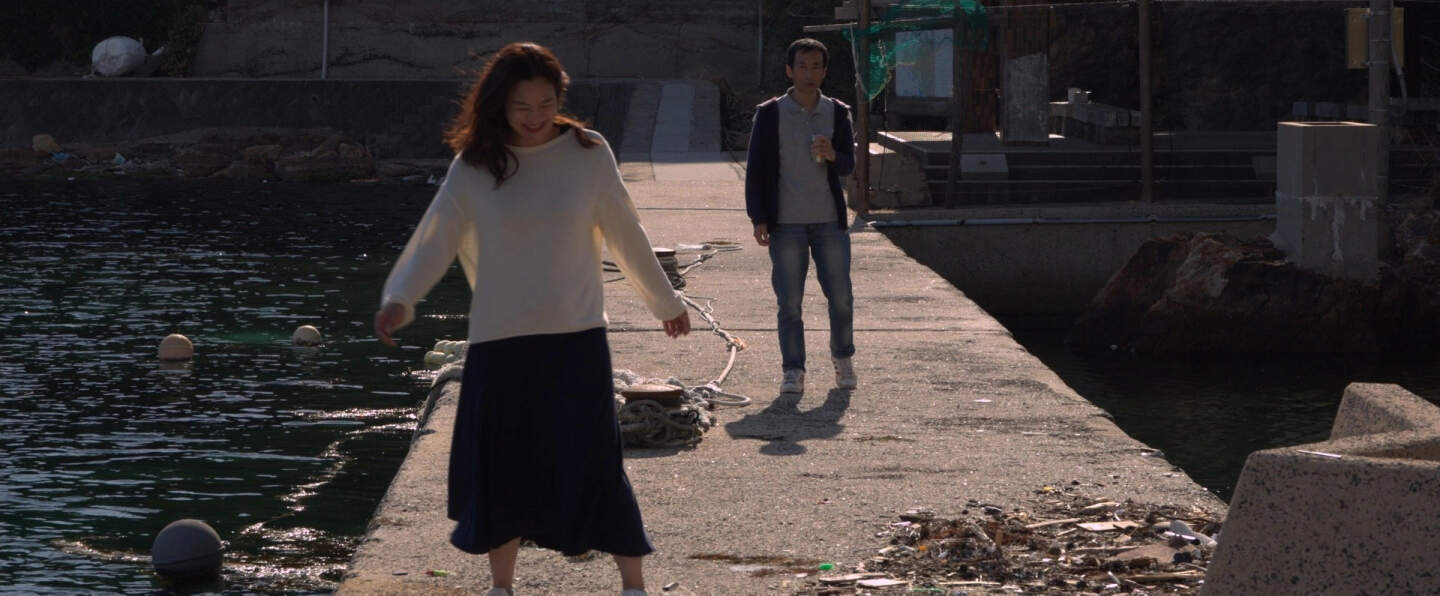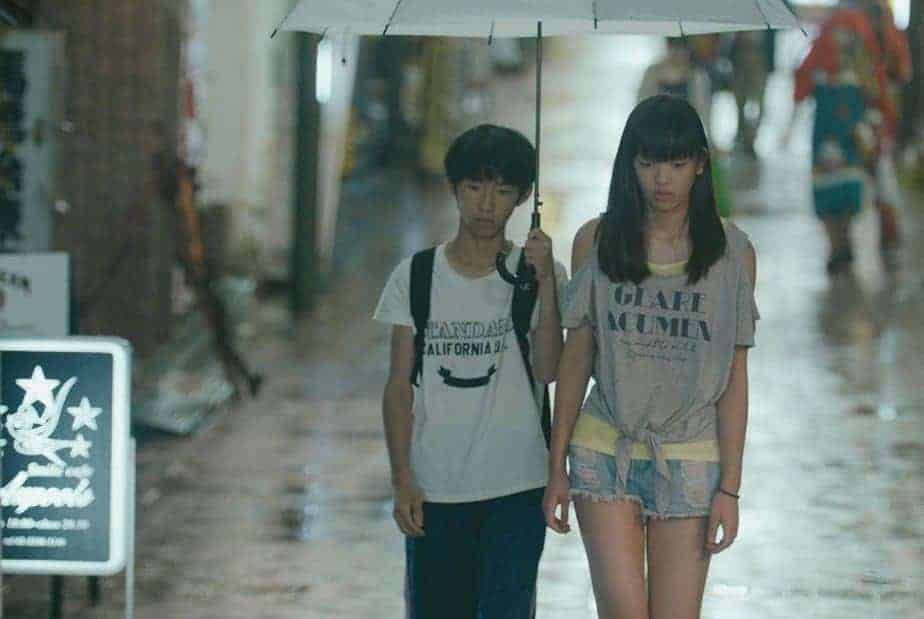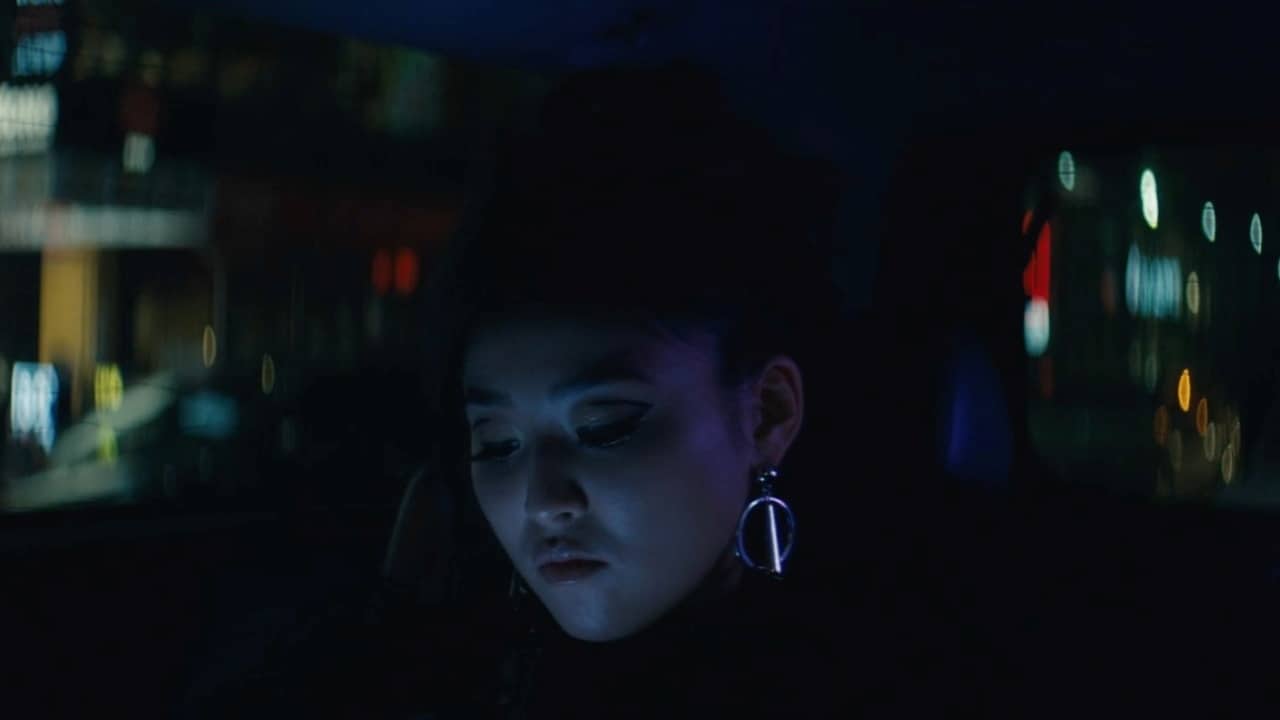Bonds and relationships are not always formed the “regular way”, with people meeting, finding out they like each other and eventually start hanging out. Sometimes, people come together just because one has what the other needs and vice versa. Kim Tae-hoon seems to focus on this second case, in his debut feature film.
Big Sleep is screening at Busan International Film Festival

Ki-young is a kind-hearted middle aged man, who hides his character, though, under a seemingly distant demeanor. His need to take care of people is either turned down, as in the case of his step-mother, who takes care of his bedridden father and is not particularly keen on Ki-young, or exploited, as in the case of his boss, who eventually involves him in a scheme of illegal waste dumping. Furthermore, a girl he likes at work, is not sure about him, with any potential romantic notion staying unfulfilled.
Ki-young's life changes, however, when, one day on his way to work, he stumbles upon Gil-ho, a young boy who has left his step-father's house due to abuse, and has decided to sleep on a bench in front of Ki-young's house. The older man initially wants him to leave, but as the young man keeps coming, he learns of his situation, and perhaps recognizing similarities with his own youth, decides to ask him to stay with him. Gradually, in the semi-hostile way male friendships are usually born, the two form a bond, somewhere between father and son, big and small brother, although not exactly any of the two. Gil-ho, however, has also fallen in with a group of petty criminals, and soon things take a turn for the worse.
Kim Tae-hoon bases his film in the rather interesting relationship between the two men and the way it changes them, in a coming-of-age element that actually applies to both.. Probably the most appealing aspect in that regard is the fact that what joins the two is the need of Gil-ho to be taken care of by someone, and Ki-young to finally take care of someone, and also the way they pretend not to be in need of each other, with the latter part being the one that adds a bit of humor in an otherwise, pretty dark drama. The way both benefit from their relationship, with Ki-young finally finding the courage to talk to his colleague and the boy finally finding some semblance of harmony in his life, highlight the benefits of their relationship in the most eloquent way.
At the same time, though, and in a rather realistic (pessimistic if you prefer) approach, Kim also shows that the baggage people carry are not always easy to overcome, with Gil-ho's “friends” and Ki-young's mistrust for people in general eventually proving intense obstacles. The way the police end up involved adds another level to the drama here, as much as Ki-young's shock when he learns the whole truth about his young friend.
Considering the main premises of the narrative are based almost exclusively on the two protagonists, the acting here plays a rather significant role, and thankfully, both of them deliver to the fullest. Kim Young-sung as Ki-young gives an astonishingly measured performance, with the way he shows that his tough demeanor and stoic ways are actually a facade being a true wonder to watch. At the same time, this constant attitude of his makes the moments he lashes out even more impactful, in some of the most memorable moments in the movie. Choi Joon-wo as Gil-ho gives a very mature performance, showing a character that is mature for his age but also still an adolescent, with his interactions with his new found “benefactor”, the leader of his crew, and his old friend all being excellently portrayed, also highlighting the chemistry among the actors here.
Some issues with the narrative do exist, however. Some subplots are underdeveloped, with the romantic one in particular seeming somewhat disconnected from the main story line, while towards the end, the movie lingers a bit too much, through a number of scenes that could have been trimmed. Apart from this, however, Son Yean-ji and Kim's own editing is quite good, inducing the movie with a slow pace that suits its aesthetics nicely. Koo Dooh-wan's cinematography captures the various settings in realistic but also bleak tones, which suit both the story and the characters to perfection.
Despite the aforementioned issues, “Big Sleep” emerges as a quite good movie, benefiting the most by the main story and the acting of the two protagonists.


